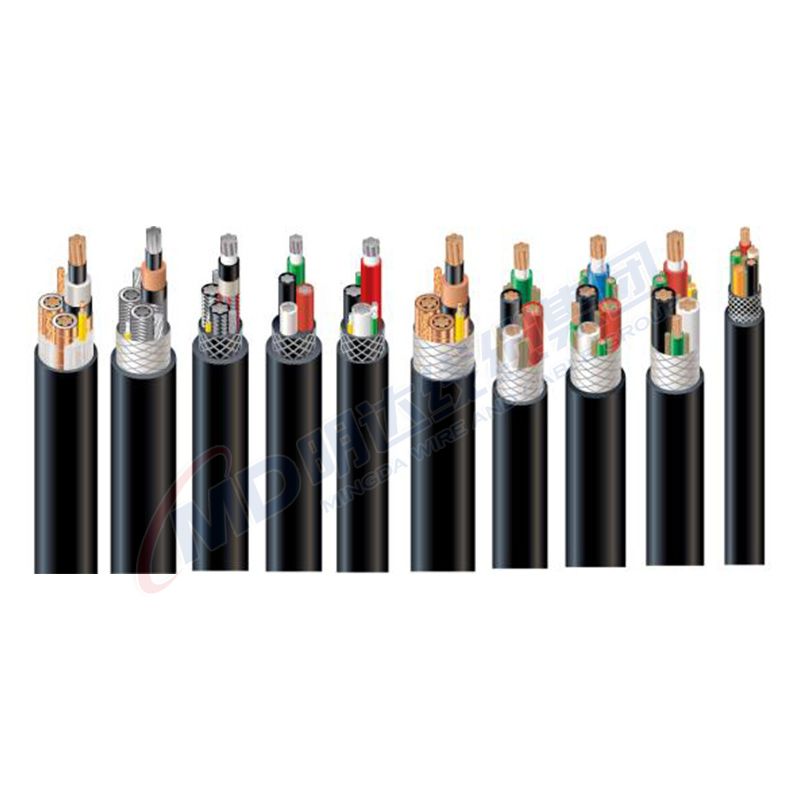Nov . 26, 2024 06:46 Back to list
Understanding the Benefits and Applications of Copper Cable Wiring for Electrical Systems
Understanding Copper Cable Wire Importance, Types, and Applications
Copper cable wire is a crucial component in modern electrical and telecommunications infrastructure. Renowned for its excellent electrical conductivity, thermal properties, and durability, copper has been the preferred material for a wide range of applications. This article explores the importance of copper cable wires, the types available in the market, and their various applications.
Why Copper?
Copper has been utilized in electrical applications for centuries, primarily due to its superior conductivity, which is second only to silver. This property allows electricity to flow with minimal resistance, making copper wires essential for efficient electrical transmission. Additionally, copper is ductile, enabling it to be drawn into thin wires without breaking. Its resistance to corrosion enhances its longevity, making it a reliable choice for both indoor and outdoor electrical installations.
Types of Copper Cable Wire
Copper cable wires come in several types, each designed for specific applications
1. Solid Copper Wire Composed of a single strand of copper, solid wires are typically used in applications requiring durability and stability, such as electrical wiring in homes and buildings. They are easy to install and provide a consistent flow of electricity.
2. Stranded Copper Wire Consisting of multiple small strands of copper twisted together, stranded wire is more flexible than solid wire. This flexibility makes it ideal for use in applications where bending and movement are required, such as in robotics, automotive applications, and power cords.
3. Copper Clad Aluminum Wire This wire consists of aluminum wire coated with a thin layer of copper. It offers a cost-effective alternative to pure copper while still maintaining good conductivity. It's often used in applications where weight is a concern, such as in telecommunications.
4. Twisted Pair Cable Commonly used in networking, twisted pair cables consist of pairs of insulated copper wires twisted together. This design reduces electromagnetic interference, making it suitable for data transmission in telecommunication networks, office buildings, and homes.
copper cable wire

5. Coaxial Cable Used primarily for cable television and internet connections, coaxial cables have a central conductor surrounded by an insulating layer and a shielded layer. This structure provides protection against interference, allowing for clear signal transmission.
Applications of Copper Cable Wire
Copper cable wires find their way into nearly every facet of modern life. Below are some of their prominent applications
- Residential Wiring Most homes utilize copper wiring for electrical outlets, lighting, and appliances. The reliability and safety of copper make it the standard choice for residential electrical systems.
- Telecommunications Copper wire is essential in telecommunications networks, providing the backbone for voice and data transmission. From landline telephones to high-speed internet, copper cabling is vital for connecting homes and businesses.
- Industrial Uses In industries, copper wires are used in various applications, including machinery connections, motor windings, and control systems. Their durability under extreme conditions makes them ideal for industrial environments.
- Automotive Industry With the rise of electric vehicles, copper wire plays an increasingly important role in vehicle wiring systems. From battery connections to electronic components, copper's conductivity is invaluable for vehicle performance.
- Renewable Energy Copper cable wire is also integral to renewable energy technologies, such as solar panels and wind turbines, where it facilitates efficient energy transfer.
Conclusion
Copper cable wire remains a fundamental component of electrical and telecommunications systems due to its excellent conductive properties and versatility. As technologies advance, the demand for high-quality copper wiring continues to grow, particularly in the renewable energy and automotive sectors. Understanding the different types of copper wire and their applications is crucial for both consumers and professionals in the industry, ensuring that the right materials are utilized for the task at hand. The ongoing innovation in copper wire technology promises to enhance performance and efficiency further, solidifying copper's role as a cornerstone of modern electrical systems.
Share
-
Reliable Wafer Type Butterfly Valves for Every IndustryNewsJul.25,2025
-
Reliable Flow Control Begins with the Right Ball Check ValveNewsJul.25,2025
-
Precision Flow Control Starts with Quality ValvesNewsJul.25,2025
-
Industrial Flow Control ReliabilityNewsJul.25,2025
-
Engineered for Efficiency Gate Valves That Power Industrial PerformanceNewsJul.25,2025
-
Empowering Infrastructure Through Quality ManufacturingNewsJul.25,2025